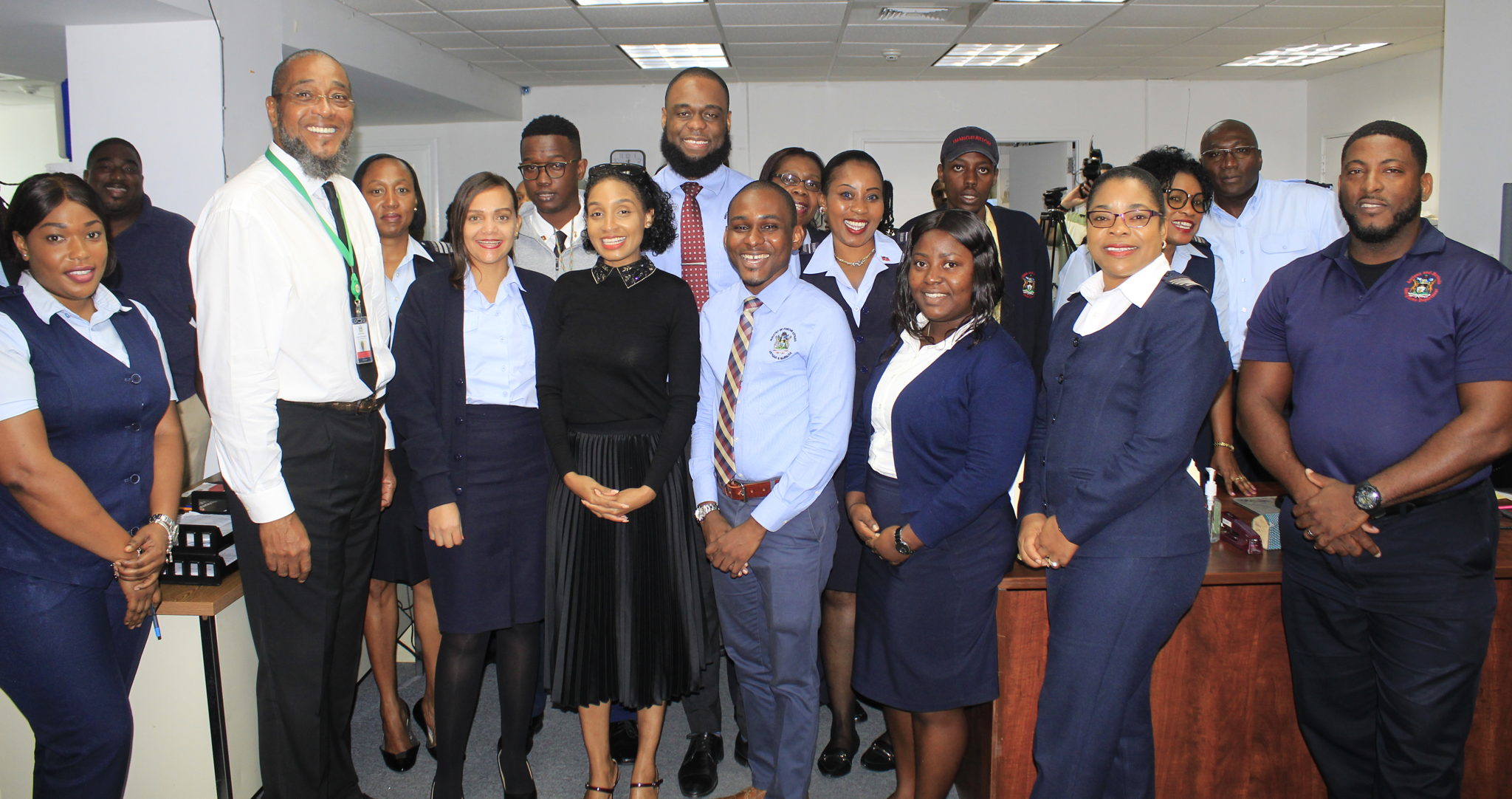Immigration officers receive training on OECS free movement of citizens
Office of the Prime Minister, Antigua and Barbuda
ST. JOHN’S, ANTIGUA — In an effort to continuously train and develop staff, the Chief of Immigration in Antigua and Barbuda, Ms. Katrina Yearwood, held a sensitisation session with her officers on aspects of the Organisation of Eastern Caribbean States (OECS) Free Movement Regime.
Under the Revised Treaty of Basseterre, citizens of all Protocol Member States in the OECS Economic Union are free to move, live and work throughout Member States. To better equip the officers with up-to-date information about the inner workings of the OECS, and the protocol for the OECS Free Movement, Ambassador Colin Murdoch, Commissioner to the OECS for Antigua and Barbuda, hosted the training session at the Headquarters of the Antigua and Barbuda Department of Immigration.
In his presentation, Ambassador Murdoch provided a brief history of the Organisation and also provided an overview of the OECS Economic Union.
Ambassador Murdoch stated that
“The fundamental objective of the OECS Economic Union is to remove barriers, consolidate markets for all Member States and support the rights and privileges that are given to any citizen and national of the Economic Union.”
The presentation touched on aspects of the Revised Treaty of Basseterre such as the Movement of Goods and Services, steps towards social security harmonisation and a heavy concentration on the Free Movement of People within the Economic Union.
The training session allowed for an interactive and fruitful discussion between the Immigration Officers and Ambassador Murdoch on other themes such as the OECS Contingent Rights, harmonised travel documents between the Member States, and the need for a broader public education campaign.
Chief Yearwood welcomed the training noting that the session "not only provides officers with the opportunity to gain additional knowledge but they also get the opportunity to exchange thoughts and ideas based on their experiences in the field.”
“We are looking forward to subsequent training and information sessions as we aim to equip our officers with the correct procedures within the scope of the OECS,” Yearwood continued.
The OECS is an inter-governmental organisation that came into being on June 18th 1981, when seven Eastern Caribbean countries signed the Treaty of Basseterre agreeing to cooperate with each other and promote unity and solidarity among the Members. The 1981 Treaty was replaced by the Revised Treaty of Basseterre in 2010, which established a single financial and economic space.
The highest decision-making body of the Organisation is the OECS Authority, which comprises of Heads of Government across all Member States. Presently, the Honourable Gaston Browne, Prime Minister of Antigua and Barbuda, is the Chairman of the OECS Authority.
The OECS Economic Union comprises seven Member States: Antigua and Barbuda, the Commonwealth of Dominica, Grenada, Montserrat, St. Kitts and Nevis, Saint Lucia and St. Vincent and the Grenadines. The Associate Member States of Anguilla, the British Virgin Islands, Martinique, and Guadeloupe, while part of the OECS, are not Economic Union participating states.
Ambassador Murdoch was accompanied by Foreign Service Officers Mr. Javier Spencer and Mr. Babu Browne, within the Ministry of Foreign Affairs; and Ms. Angelica O’Donoghue, Communications Officer within the Office of the Prime Minister.

















